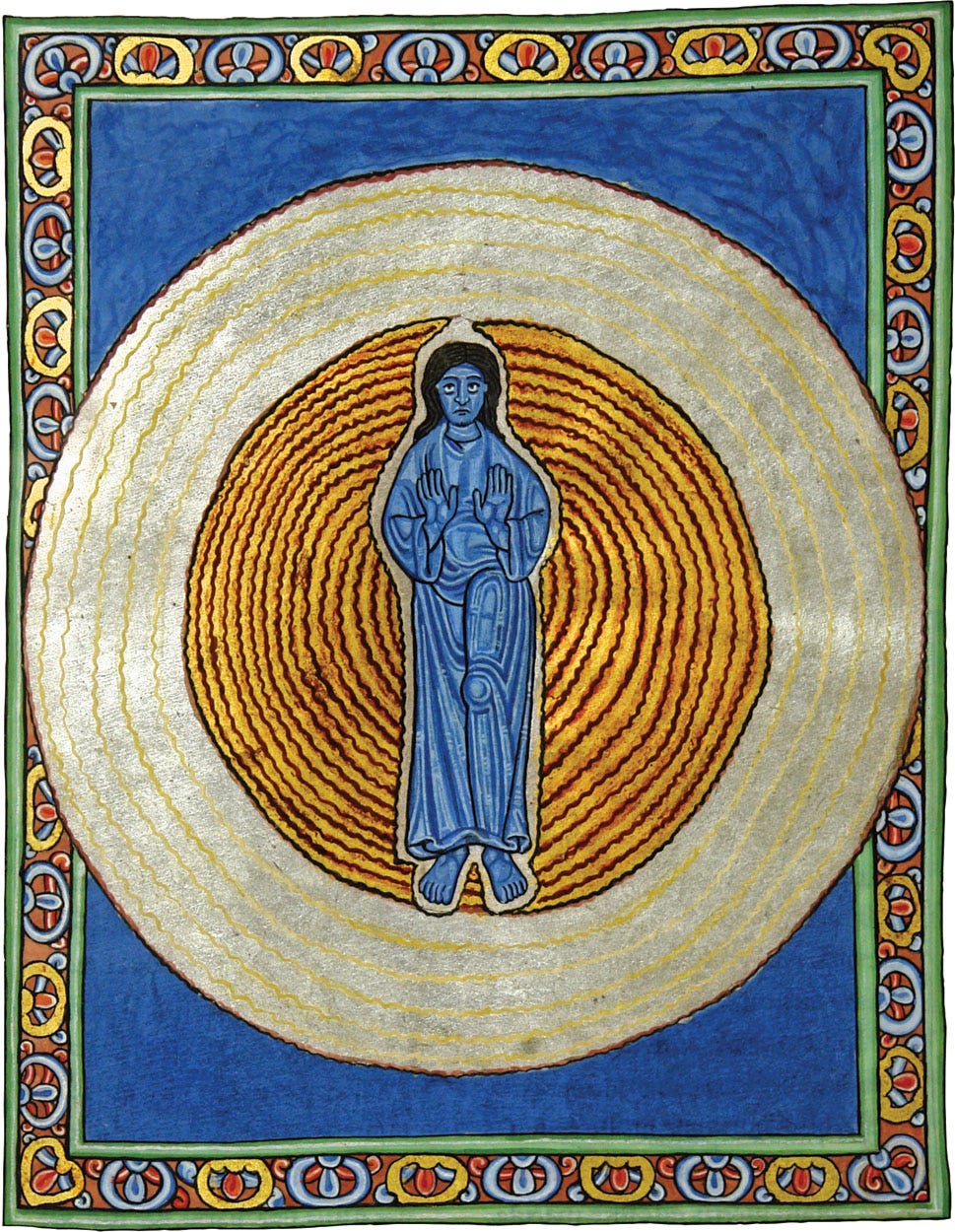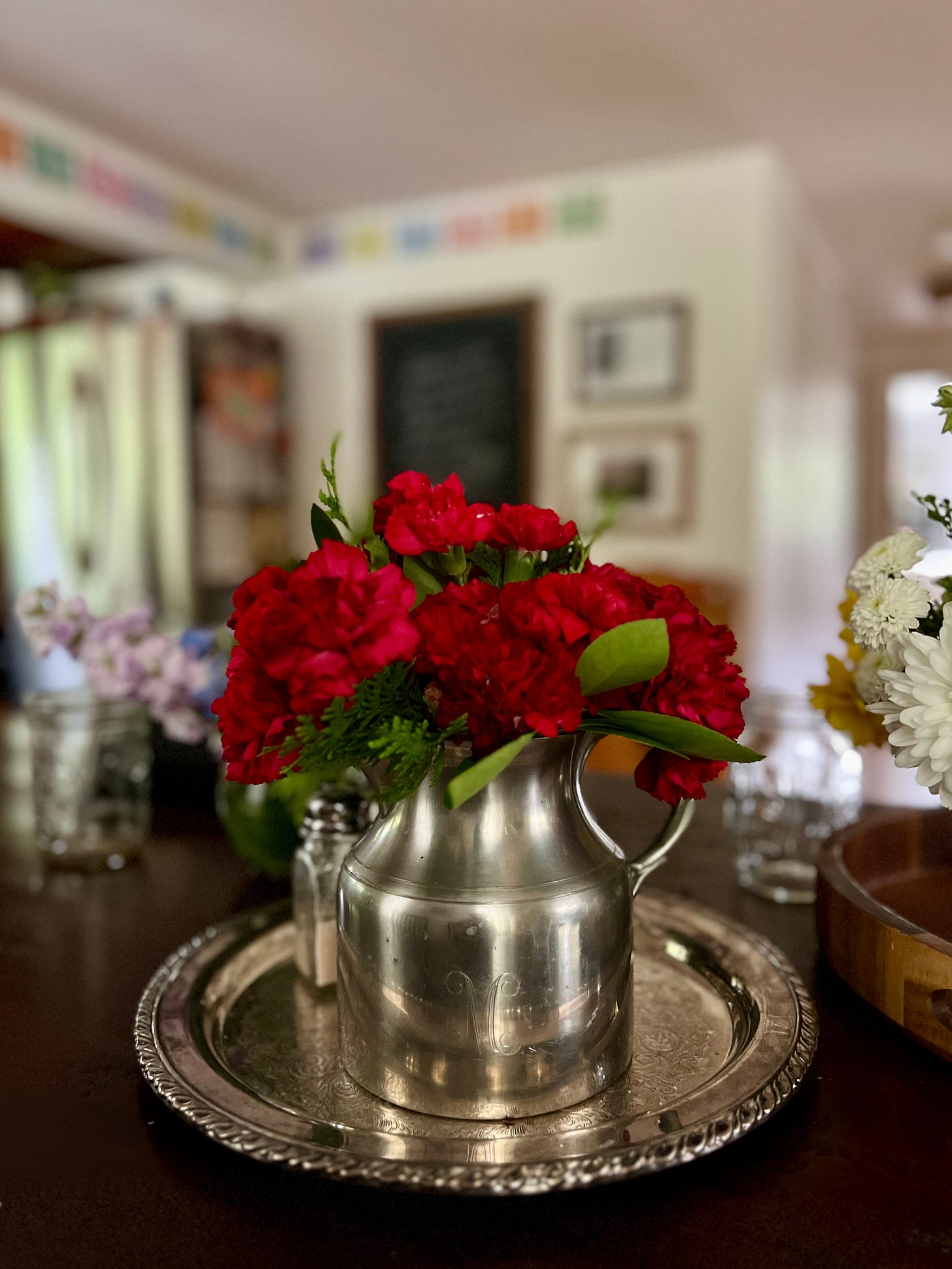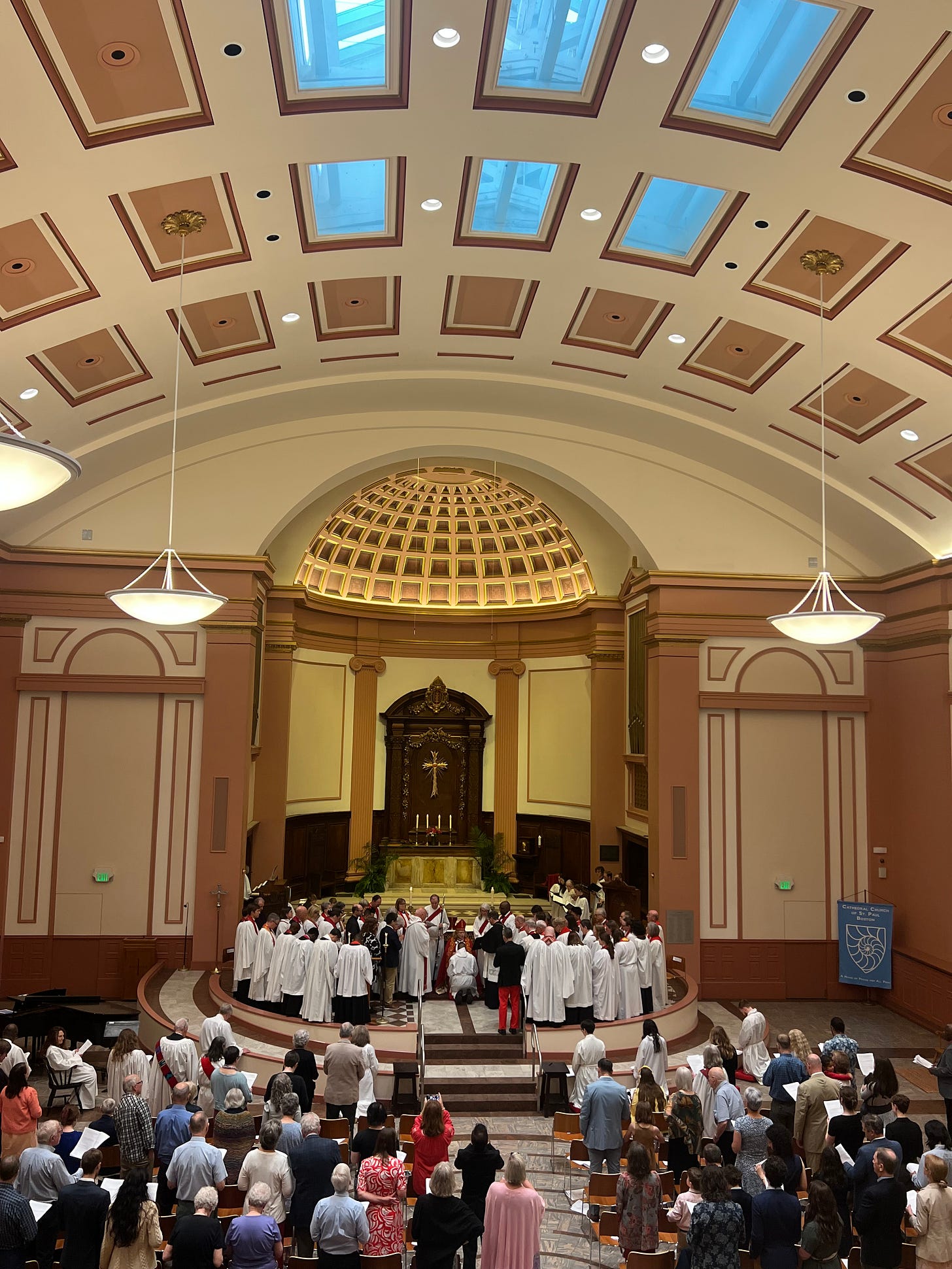How can I hear the Spirit's voice?
A 12th century poem, Pentecost, and a newly ordained priest
Pentecost was on my mind more than usual this year as it was the first Sunday my husband celebrated mass as an ordained priest. This was quite a full weekend, joyful as ever and long awaited. The timing felt serendipitous, too. I’ve shared bits and pieces of our journey into the Anglican/Episcopal church on the internet somewhere, but allow me to say a bit more.
Pentecost, or Whitsun to some, is a day often marked as the beginning of the church. Luke, the likely author of Acts, records the peculiar encounter the disciples have in the upper room. It’s the birth of a new chapter. Their experience of holy fire further expands their faith. It stirs up unlikely conversations and questions abound.
As described in the Acts of the Apostles (2:1), the disciples were together on this day and united in heart and mind. Into the harmony of their thoughts, feelings, and common religious practice, came the gift of inspiration from the Holy Spirit… Being thus inspired, that is “in-spirited,” the disciples were able to go out and proclaim to the people gathered what had occurred and bring about a similar experience in them. Whitsun is therefore a festival of Christian community.” — Festivals with Children, Brigitte Barz
In my second year of seminary I heard the still, small voice of the Spirit pressing me towards a change. It caught my attention, though the experience was all rather ordinary. Aaron and I sat together at the kitchen table in our third floor apartment and talked about it into the night. That conversation clarified much for us and quickly became a reference point as we pivoted into the Anglican Church. Perhaps this was our own upper room encounter.
I found faith as a child in the pentecostal tradition, which placed a significant emphasis on the gifts of the Holy Spirit, including prophecy, speaking in tongues, and miraculous healings. Aaron and I even met at a university founded on “Holy Spirit-empowered” education. To distance myself from these expressions of faith, even choosing a different denomination, may very well have been perceived as a departure from “biblical” Christianity to many in our circles. And yet, I trusted the Holy Spirit to teach us a new language of faith.
In a mere seven or eight years our lives have swiftly opened towards the Spirit’s work through contemplative worship, sacramental theology, iconography, liturgical time, inclusive ministry, new forms of evangelism, and more. Questions followed from our families and friends. Yes, yes, we are still Christians. Yes, I actually like the “smells and bells” of it all! And most importantly — yes! We still tune our hearts to hear the voice of the Holy Spirit.
Just the day before Pentecost I watched dozens of priests surround Aaron as the bishop laid her hands upon his head, ordaining him into the priesthood. It was a sight to behold. I wept. My thoughts carried me back to that old kitchen table. It was just us two thinking out loud, willing to take a risk.
With time I realized that was one of many “in-spirited” conversations woven within The Great Conversation1 we share with God throughout our lifetimes. Trusting the Spirit moved us, spiritually and physically, over and over. This was true for the disciples, too. Pentecost is not simply about the upper room, it’s a firey reminder to move through the world with God’s wide and ever expanding love. And the season after Pentecost is an excellent season to continue this divine conversation in real, ordinary life, wink wink.
When change knocks on the door of our hearts or — in the case of the disciples — just drops right in with dollops of fire, how do we know it’s God? How can we trust the Person we’re speaking to, who’s also speaking to us?
How do you know it’s the Holy Spirit?
How do you trust God’s voice?
Does the Spirit still move when God is silent?

In my work as a spiritual companion, I sit with these questions regularly. And I have no profound answers, so I would like to offer you a poem instead. I invite you to sit with the words of Saint Hildegard von Bingen, a 12th century mystic, scholar, composer, and botanist, who describes the Holy Spirit with both sharp scriptural knowledge and tender relational experience in her poem, Holy Spirit of Fire.
O Holy Spirit of Fire,
life in the life of all life,
holy are you,
enlivening all things.
Holy are you,
a healing balm
to the broken.
Holy are you,
washing
blistered wounds.
O Holy Breath,
O Fire of Life,
O Sweetness in my breast
infusing my heart
with the fine scent of truth.
O Pure Fountain
through which we know
God unites strangers
and gathers the lost.
O Heart's Shield, guarding life
and hope, joining the many members
into one body;
Belt of Truth,
wrap them in beauty.
Protect those ensnared
by the enemy,
and free the worthy
from their fetters.
O Great Way that runs through all,
from the heights,
across the earth,
and in the depths,
you encompass all and unify all.
From you the clouds stream
and the ether rises;
from your stones precious water pours,
springs well and birth waterways,
and the earth sweats green with life.
And eternally do you bring forth knowledge
by the breath of wisdom.
All praise to you,
you who are the song of praise
and the joy of life,
you who are hope and the greatest treasure,
bestowing the gift of Light.
How might this poem help inform your own conversation with the Holy Spirit?
Read through it a few times or take a look at another poem from Hildegard, Antiphon for the Holy Spirit. (I also commend this hymn to you.) Jot down what you notice as you read or listen. Where do you notice similar movements of the Spirit in your life?
In my own reading I noted a couple things.
God moves towards us, within us, and through us with love.
God’s living Spirit does not condemn or shame us. Instead, the Holy Spirit comforts and instructs.
God’s call to repentance is a call to reorient ourselves in right relationship to God, self, others, and creation.
Though she is fractured and often confused, Pentecost is a day to celebrate the Christian church and the continuation of The Great Conversation through the mysterious work of the Holy Spirit. And even more so, the season after Pentecost invites us to participate with the Spirit through ordinary acts of kindness, mercy, healing and justice, comfort, and in-spirited instruction.
With peace,
Elizabeth
If you’d like to explore the Holy Spirit’s movement in your own life with a trained listener, I encourage you to speak with a spiritual director. I’m resting for the summer, but will resume sessions in the fall. Reach out if you’d like to put something on the calendar.
Related Resources
Write (or refresh your Rule of Life with this three part video series.
The 2025-2026 liturgical calendar guide will be available come July. Follow my Etsy shop to be notified when it’s ready.
A phrase also referring to the exchange of ideas through art and literature, but for our purposes here it’s referring to our relationship with God.







Congratulations to you, your husband, and your sweet kids on this beautiful new chapter!